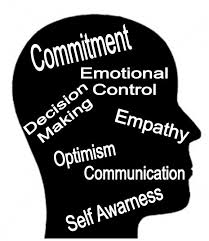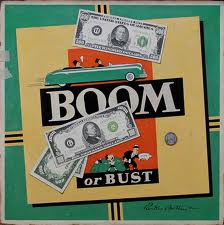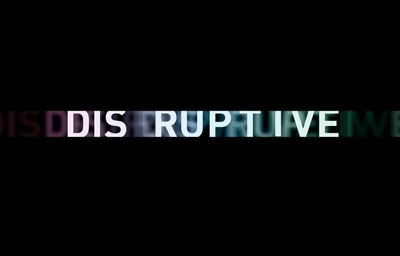by theEmother | Mar 24, 2014 | build a Mother of a Business, business book club, business ideas & thinking, entrepreneur trends (past & present!), Finish Unfinished Business, MEinc, so you think you're in business, start with the end in mind, the business model

7 traits of Emotional Intelligence
HEALTHY, WEALTHY AND WISE AT WORK…
Seven key strategies for helping us all sustain greater health, wealth and wisdom at work.
The evidence is impressive. The research described here has established clear links between happiness and our health, wealth and wellbeing. By happiness I mean an emotional, physical and spiritual prosperity – something I call Emotional Capital.
In my work with professional people over the last fifteen years I have found that high levels of emotional capital lead to increased productivity, and as many studies show, happy people are more creative, solve problems better and more quickly, live longer and enjoy high levels of leadership influence. In other words, when people feel better they perform better.
This is not about looking at life through rose-coloured glasses or ignoring the disappointments in life. It is about investing in your greatest asset – your emotional capital.
Your happiness is good for business.
by Martyn Newman… read on
I repeat, “your happiness is good for business”
How happy are you right now?
On a scale of 1 to 10 (with 10 being hip hip hooray happy), what do you score yourself?
10? fabulous – keep up the great life
below 7? what’s going on and what can you do about it?
What are you going to DO about it?
by theEmother | Feb 13, 2014 | build a Mother of a Business, business ideas & thinking, buy | sell websites, BUY a Business, Buy a Mother of a Business, entrepreneur trends (past & present!), Finish Unfinished Business, Online Strategy incl. www, so you think you're in business, start with the end in mind, the business model

Back not so long ago, there were the boom-and-bust years of the WWW when companies paid big bucks for what appeared to be unprofitable online businesses/websites. A sort of gold fever gripped investors: some became almost instant millionaires and others, well many others went the other way, in a big way!
Since the bubble burst, however, the online market has established at a more measured and sustainable pace. Trends show that there are sites that continue to increase in value across the board and the trend remains upward.
This environment presents ample opportunity for successful speculation. Just like the physical property market, the online property market is rightly being regarded by many as a great place to make not just a quick profit, but—potentially—a living.
As with a property, you can buy a web site and have it increase in value over time without having to do anything but maintain it (although the value of physical property depends on the scarcity of real estate, which is unlikely ever to be a problem online!). [“Flipping Websites for Profit“]
As with any business purchase, there are steps to this process:
1. Locating an online business you want to buy
2. Negotiating and completing the sale
3. Adding value to the business
4. Making the decision what to do next – do I keep it? or do i sell it?
5. If part of an existing business’ online strategy, is it doing its job? has it lived up to expectations? is it time to buy another one perhaps?
Lets look at Step 1.
How do you find an online business to buy?
Do you know of one being sold, that you’re interested in?
How do you know what you’re looking at, really? How do you analyse it?
I’ll into more detail about these points next week…
by theEmother | Jan 15, 2014 | build a Mother of a Business, business ideas & thinking, entrepreneur trends (past & present!), Finish Unfinished Business, Online Strategy incl. www, so you think you're in business, start with the end in mind, the business model

As noted in late 2013, Bernard Salt the demographer comments,
“all the global financial crisis did was to accentuate a social and technological trend in shopping that was already well under way. I suspect the same logic applies to recent profound changes in business.
Business is always looking for operational efficiencies, one response has been the contrarian pursuit of new opportunities. But here’s the twist. The new business opportunities coming out of the past five years have split into two categories: the conventional and the unconventional.”
Disruptive Thinking is unconventionally very exciting; it is also the way of the future. Business Owners should not only encourage but facilitate disruptive thinking and thinkers.
Your Business Online Strategy is a classic form of the new Disruptive Thinking.
Hence why it is imperative that you get started on it now, if you haven’t already. It will be even more so when the time comes for you to sell, when your business to good to go on the market…
To watch Bernard Salt discuss Disruptive Thinking, click here
by theEmother | Dec 20, 2013 | build a Mother of a Business, business ideas & thinking, BUY a Business, Buy a Mother of a Business, Buying2give.com, Consultant EXIT Options, entrepreneur trends (past & present!), entrepreneurial mothers, events, EXIT execution, exit strategy, Finish Unfinished Business, growth by acquisition, how to sell a business, inspiring women, MEinc, Online Strategy incl. www, political offerings, Sell Your Business, SELL your Mother of a Business, Sellability Score, single parent l single mother, so you think you're in business, start with the end in mind, TEMplate, TEMpting, the business model, women in business case studies

May your stocking be filled with all your little heart desires.
Ho ho ho!
ps: 2014 is shaping up to be a ripper… look forward to sharing it with you
by theEmother | Jul 15, 2013 | build a Mother of a Business, business ideas & thinking, entrepreneur trends (past & present!), entrepreneurial mothers, EXIT execution, exit strategy, Finish Unfinished Business, how to sell a business, Sell Your Business, SELL your Mother of a Business, Sellability Score, start with the end in mind, women in business case studies
Smart ways out – starting with the end in mind can make a real difference to your bottom line, says business strategist Denise Hall. “
This is how the piece about me is introduced in the latest Westpac Ruby Connection enewsletter starts, and it goes on to say…
“We discuss the business lifecycle and we talk about start-up and growth. Maybe, we get a few tips about exiting the business. In my opinion finishing unfinished business – starting with the end in mind – deserves the same consideration as birth and growth or you risk losing out or even packing it away, without satisfaction,” says Denise.
“I haven’t figured out why, yet, but very few business owners regard their business as an asset,” Denise continues.
A ‘sellability score’, helping you tick off the boxes around what buyers look for in a business can be a very helpful tool and it’s one that Denise has accessed, for anyone to use. The take-home message for sellers: buyers buy profit not potential.
Very pleased and excited that the message of “Finishing Unfinished Business” and even as importantly, the notion of building a business as an asset is slowly but surely getting out there. Clearly Westpac and the Ruby Connection see it as a topic worth sharing.
Even better to see this int he same publication as the launch this years 100 Women of Influence Awards. I’ll be curious to see how many of them are business owners who have built an asset, way larger than they had initially thought… time will tell
by theEmother | Jun 26, 2013 | build a Mother of a Business, entrepreneur trends (past & present!), Finish Unfinished Business, the business model

Trendwatching.com do fabulous work and this revisit is no exception.
Well worth revisiting these in relation to your business as well. What applies? What does not? What should apply? What should not?
We’re often asked what is happening with previous trends. Here we take a look at five: where they are now, where they are headed, and the many opportunities they continue to offer.
- SELLSUMERS: Will there be any consumers left NOT making some money on the side?
- MATURIALISM: It’s a raw, transparent, mature world out there – time for brands to grow up or give up.
- POINT & KNOW: Get ready for a POST-POINT & KNOW future.
- ECO-SUPERIOR: Why even ‘carbon-neutral’ won’t cut it.
- MADE FOR BRIC: And now let’s get busy with MADE FOR N11.
With examples from UNICEF Sweden, Airbnb, L’Occitane, Google, Hong Kong’s Zero Carbon Building, and many more…
Read it in full here! »
trendwatching.com TRENDS REFRESHED infographic






